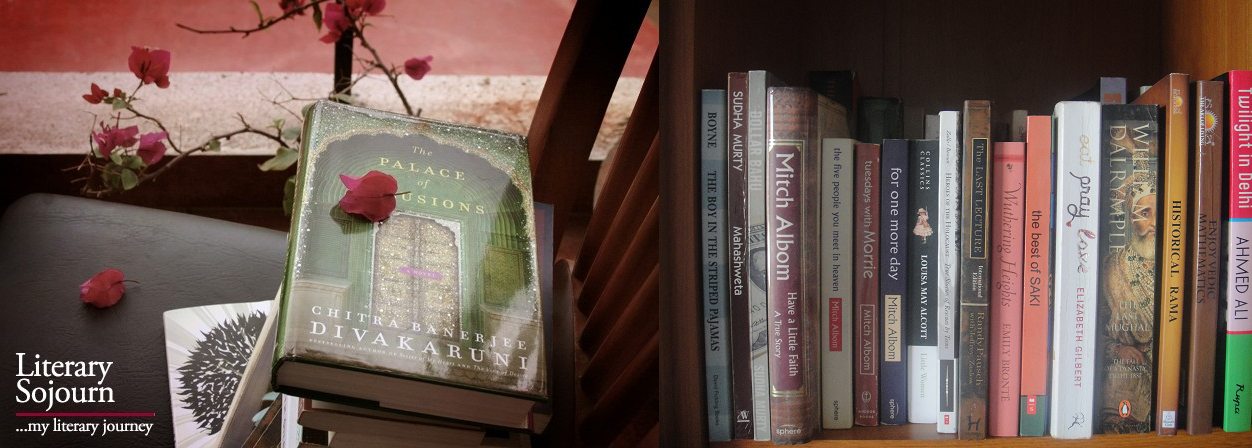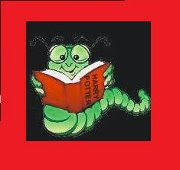Title :
Scion of Ikshvaku (Ram Chandra Series I)
Author :
Amish
Publisher
: Westland Ltd.
I
remember the time when I had finished reading 'The Immortals of Meluha', the
first of the Shiva Trilogy by Amish. It was a marathon reading as the book was
truly unputdownable. I marveled at the creativity of the
author and his brilliance of connecting dots beyond one's imagination. I had a lot to write while compiling its review.
Another
first of another series, this time it is Ram Chandra Series. Again a fast paced,
engaging and readable book. While putting down the review I have again a lot to write about the story and the writing style.
In India,
growing up with stories form mythology is a very natural thing and stories from
Ramayana and Mahabharata form a major part of that experience. There is no
point writing about the story but then even the author has not told the same
story. He has just picked the characters from the saga and the major events
from it but the situations leading to those events and the portrayal of the
same characters are completely different. In fact it is so different that one
doesn’t see any connection with the great epic that we identify with. Actually he has taken creative liberties with the story to such an
extent that barely the skeleton resembles the age old saga now, nothing else.
Author's
great level of imagination and creativity are undoubtedly applaud worthy. The
way he pieces things together talks highly about his intelligence and with the
mention of a prospective land - Meluha, he just nailed it completely.
Rama
considered a bad-omen by Dashrath, Manthra's character as a power wielding
entity, her daughter as a benevolent healer, Sita and Urmila as ministers of
their state, Swayamvar setting, fun-filled relationship between Ram and Sita,
weakening empire Mithila - are just a
few things which completely deviate from our impressions and understanding of
the story.
There are
some high points and sections which rise meritoriously making the readers fall
in love with the proceedings. However, there are parts where the narrative
falters in terms of expected excitement and interest. Amish has tried to give
some contemporary touches to the mythological story, like - gender equality,
Roshni's case (on the lines of Nirbhaya's tragedy), juvenile justice -to name a
few. However, some of these attempts seem superimposed and do not gel well with
the natural flow.
So my
verdict, if anybody cares, one can read it as just a fictional story having no
connection with Ramayana that we know. Would I look forward to the next in the series? - I doubt.




.png)









INKREDIA Luwan of Brida by Sarang Mahajan is one of the books that I have liked in 2018. It’s the first book of the INKREDIA series and because of the way it ends, I cannot wait to read the second instalment. I was so impressed with how the author has designed his own universe and the magical elements in it. World building is the most crucial part of any fantasy and I want to give the author kudos for doing it so well. The main characters of the book- Luwan, Meg and Kiliarn are a formidable trio while dealing with dark assassins. The action packed sequences written in the book were really very impressive. This book completely justifies the fantasy tag. Click on this link to know more: https://inkredia.com/
ReplyDeleteDindooosthan - The "Curse of the Kingdom" of "King Ikshvaku" (bitter Cucumber)
ReplyDeleteThe "Entire Dubious history" of the "Dindoo Hindooo Bindoo,Jains and the Booodheests starts "with this impotent deviant "King Ikshvaku"(literally means "bitter cucumber) who was the "Son of Manu".dindooohindoo
The Limpet was based "where else, but in Awadh",along the banks of river Sarayu with Saketa, which is Ayodhya today, as their capital.(Sounds Familiar!)
This is the "Dubious Suryavansa (the Solar dynasty)", which "bred the following vermin" :
Lord "Limpdick Rama"
The "Entire Sakya Dynasty" (including Boodha!)
"22 out of the 24 clown" Jain Teerthankars
Execution of "Manusmriti"
The Limpet King "had 4 sons" whom he "sent to exile", and who "copulated with and married their own sisters", to produce the "Divine Sakya Dynasty" !
The reason Y the vermin king "kicked out his 4 sons" - is just like the "story of Gay Pansy Rama" !
As per "Ambattha-sutta of the Theravada Digha-Nikaya" (Long Discourses)
“Out of fear of the mixing of castes "they cohabited (sa—vasa) together with their own sisters"
?
Hence,Boodha,Jain Teerthankars and the Dindo Bindoo Hindoo Limpdick Rama are "born from the seeds of incest" !
Wonderbar !
Y has Dindooism,Jainism and Boodheesm "been doomed in Dindoosthan" and Y was it "raped and pillaged" by the Huns, Mughals, Mongols, Turks, Chinese ?
All in the History !
Y WAS RAMA A LIMPET LIMPDICK COWARD WEASEL
ReplyDeleteCASE 1 - HE WAS BORN BY HIS LIMPDICK FATHER WHEN DASHRATH WAS 6000 YEARS OLD
Book I : Bala Kanda - The Youthful Majesties
Chapter [Sarga] 20
षष्टिर्वर्षसहस्राणि जातस्य मम कौशिक || १-२०-१०
कृच्छ्रेणोत्पादितश्चायं न रामं नेतुमर्हसि |
10b, 11a. koushika = oh Vishvamitra; jaatasya mama = birthed, for me [from my birth]; SaSTiH varSasahasraaNi = sixty thousand years [passed] ; ayam = this one [Rama]; kR^icChreNa = with tribulations; utpaaditaH cha = is produced given birth, also; raamam netum na arhasi = unapt of you to take Rama with you.
"Sixty thousand years have passed from my birth, oh! Vishvamitra, and this Rama is engendered at this age, that too with tribulations, hence taking Rama with you will be inappropriate of you. [1-20-10b, 11a]
CASE 2 - RAMAS MOMMY WAS NOT "IMPERGNATED BY DASHRATH" ! WHOSE SON WAS RAMA THE LIMPDICK .dindooohindoo
Book I : Bala Kanda - The Youthful Majesties
Chapter [Sarga] 16
ततस्तु ताः प्राश्य तदुत्तमस्त्रियो
महीपतेरुत्तमपायसं पृथक् |
हुताशनादित्यसमानतेजसोऽ-
चिरेण गर्भान् प्रतिपेदिरे तदा || १-१६-३१
31. mahiipateH tataH uttamastriyaH = those best ladies of king; tat uttamapaayasam = that, best dessert; praashya = on consuming; hutaashanaadityasamaanatejasaH = equalling Fire and Sun in resplendence [queens]; achireNa tadaa garbhaan pratipedire = then very soon they got - conceived.
Then on consuming dessert those best ladies of the king whose resplendence then vied with that Fire and Sun became pregnant after some time. [1-16-31]
PROOF THAT SEETA WAS A NEPALI RANDI
ReplyDeleteCASE 1 - RAVANA TALKING TO SEETA
Book III : Aranya Kanda - The Forest Trek
Chapter [Sarga] 49
राज्यात् च्युतम् असिद्ध अर्थम् रामम् परिमित आयुषम् || ३-४९-१३
कैः गुणैः अनुरक्ता असि मूढे पण्डित मानिनि |
यः स्त्रिया वचनात् राज्यम् विहाय ससुहृत् जनम् || ३-४९-१४
अस्मिन् व्याल अनुचरिते वने वसति दुर्मतिः |
13b, 14, 15a. muuDhe = oh, unintelligent lady; paNDita maanini = highly intelligent, deem your self; dur matiH = bad, minded [mindless Rama]; yaH striyaa vacanaat = who, by a woman's, word; sa = along with; su hR^it janam = good, hearted, people; raajyam vihaaya = kingdom, on leaving off; vyaala anucarite = predators, moving in [on prowl]; asmin vane vasati = in this, in forest, he who lives - Rama; such a; raajyaat cyutam = from kingdom, fallen [spurned off]; a siddha artham = not, gainful, his purposes; [maanuSaH = being human]; parimita aayuSam = he is with - limited, longevity - short-lived human being; raamam = at Rama; kaiH guNaiH anuraktaa asi = by what, merits [of Rama,] impassioned [for him,] you are.
"Oh, halfwitted lady, you who deem yourself a highly intellectual lady, listen, that mindless Rama who just by a word of a woman forebode kingdom along with all of his amiable people, and lives in this forest where the predators are on the prowl, thus he who is spurned off from kingdom, ungainful are his purposes, and who is even a short-lived human, I wonder by what merits you are impassioned for such a Rama?" Thus Ravana spoke to Seetha. [3-49-13b, 14, 15a]
CASE2 - SEETA THINKS HER BODY IS TO BLAME FOR HER FATE.dindooohindoo
Yuddha Kanda - Book Of War
Chapter [Sarga] 48
स्तनौ च अविरलौ पीनौ मम इमौ मग्न चूचुकौ |
मग्ना च उत्सन्गिनी नाभिह् पार्श्व उरस्कम् च मे चितम् || ६-४८-११
11. maamakau = my; stanau = breasts; aviralau = are close to each other; piinau = fully developed; magna chuuchukau = and have depressed nipples; naabhiH = my navel; magnaa = is deeply; utsedhinii = indented; me = my; paarshvoraskamcha = flanks and bossom; chitam = are well-formed.
"My breasts are close to each other, fully developed and have depressed nipples. My navel is deeply idented. My flanks and bossom are well-formed."